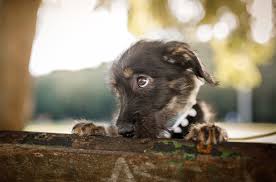How much yogurt can I give my dog? As a general rule, we would say that you should give one spoonful is considered an accurate serving size for a small dog. For a medium dog, you can give them two spoonfuls of Greek yogurt. Finally, if you have a large dog, three spoonfuls are considered adequate.
What kind of yogurt can I give my dog? According to Purina Nutritionist Karina Carbo-Johnson, MS, “Plain or non-fat plain without any sweeteners or preservatives is the best kind of yogurt to give to your dog.” There are yogurts your dog can enjoy and may even be good for them.
Can dogs eat plain Greek yogurt? Yogurt is a good source of protein, calcium, and probiotics, all of which boost your dog’s immune system and help them get over an upset stomach. Plain Greek-style yogurt is the healthiest yogurt for your dog, and there are a ton of tasty additions you can throw in that your dog will enjoy.
Is vanilla Greek yogurt good for dogs? Best kind of yogurt for dogs
Although vanilla yogurt is safe, Greek yogurt and plain yogurt are still the best kinds to give to your dogs. Greek yogurts contain more concentrated levels of live-culture probiotics, low in fat, and are low in lactose sugar.
How much yogurt can I give my dog? – Additional Questions
Are bananas good for dogs?
Yes, dogs can eat bananas. In moderation, bananas are a great low-calorie treat for dogs. They’re high in potassium, vitamins, biotin, fiber, and copper. They are low in cholesterol and sodium, but because of their high sugar content, bananas should be given as a treat, not part of your dog’s main diet.
What happens if my dog eats vanilla yogurt?
Some vanilla yogurt products may contain xylitol, which is toxic to dogs. The next thing to check is the fat and sugar content of the vanilla yogurt. The occasional yogurt treat won’t be of much harm but dogs that are fed vanilla yogurt on a regular basis may potentially suffer from major weight gains and obesity.
Is vanilla Greek yogurt healthy?
Greek yogurt is an excellent source of calcium, which can help improve bone health. It also contains probiotics, which support a healthy bacterial balance in the gut. Eating Greek yogurt may be associated with lower blood pressure and a lower risk of type 2 diabetes.
Can I give my dog vanilla yogurt for diarrhea?
Yogurt. Plain live yogurt can help your dog to recover from diarrhea, and even help to prevent future incidents. The beneficial bacteria in the yogurt colonize the gut, helping to crowd out harmful bacteria that cause diarrhea.
How can I harden my dog’s stool?
To firm up your dog’s stool, try switching to a high-quality, low-fat dog food that lists meat as the main ingredient. Also, if your dog currently eats wet food, gradually replace the wet food with dry food until your dog is only eating dry food, which can help make its stools firmer.
Is peanut butter good for dogs?
Most peanut butter is safe for dogs to eat, and in moderation peanut butter can be an excellent source of protein and healthy fats, vitamins B and E, and niacin.
What dogs shouldnt eat?
- Chocolate. Chocolate contains a very toxic substance called methylxanthines, which are stimulants that can stop a dog’s metabolic process.
- Avocados.
- Onions and Garlic.
- Grapes and Raisins.
- Milk and other Dairy Products.
- Macadamia Nuts.
- Sugary foods and drinks.
- Caffeine.
Can dogs eat ice cream?
Dogs Don’t Digest Milk Well
Eating ice cream may cause your dog a stomach ache or worse, depending on how sensitive they are. Ice cream can cause your dog gas, bloating, constipation, diarrhea or vomiting.
Can dogs have popcorn?
So is it safe for dogs to eat popcorn? Yes and no. Plain, air-popped popcorn is safe for dogs to eat in small quantities. Buttered popcorn or popcorn with other toppings is not safe for your dog on a regular basis, although eating a few dropped pieces here and there probably won’t hurt him.
What fruit can dogs not eat?
Can dogs have potatoes?
White potatoes belong to the nightshade family of vegetables, which includes tomatoes; like tomatoes, raw potatoes contain solanine, a compound that is toxic to some dogs. However, cooking a potato reduces the levels of solanine. If you do feed your dog a potato, it should be baked or boiled, with nothing added to it.
Can dogs eat cucumbers?
Are Cucumbers Safe for Dogs? Cucumbers are perfectly safe for dogs to eat, and offer a low-calorie, crunchy snack that many dogs love. Cucumbers only contain about 8 calories per one-half cup of slices, compared to the 40 calories in a single medium biscuit, and are very low in sodium and fat.
